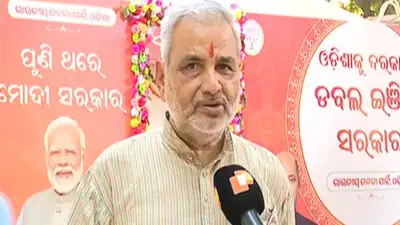Recommended Stories
"We plan to increase the subsidy component of the TUFS to Rs 1,000 crore over the next five years," Sharma said.
Under the TUFS, the government has already implemented 20 percent credit linked capital subsidy scheme since November, 2003. Also, Rs 239 crore was disbursed to 3,212 units till March, 2012, Sharma told reporters here over the weekend, on the sidelines of an industry function.
The ministry is targeting to upgrade 2 lakh looms out of 23 lakh during the 12th Plan, with 26 percent assistance under TUFS for the weaving sector, he said.
The development comes after last Tuesday`s financial package announced by the government for the sector, under which it had asked banks to restructure loans worth Rs 35,000 crore for the textile sector, which is reeling under the impact of volatile yarn prices and slowdown in major markets.
Banks have an exposure of Rs 1.75 lakh crore to the sector, which means just under a quarter of the loans will be restructured in one of the biggest loan recast programmes.
The CDR package was unveiled following discussions the ministries of textile and finance had with RBI and Planning Commission. The industry will be provided with rescheduling of loans, interest relief and working capital needs.
The sector has been hit by a sharp fall in cotton yarn prices and poor domestic and global demand. Textile units are facing difficulty in repaying term loans and financing working capital.
On the demand of textiles industry associations for a two-year moratorium on long term loans, the finance ministry is examining the issue in consultation with the RBI.
The finance ministry would also examine the demand for special provision in NPA norms to avoid asset reclassification and enable working capital eroded to be converted into working capital term loans, repayable over a period of 3-5 years.
The decentralised powerloom sector is one of the most important segments of the textile industry in terms of fabric production and employment generation. It provides employment to 57.45 lakh and contributes 62 percent to total cloth production, 38,015 million square mt as against 62,559 million sq mt in the country.
For the welfare of the powerloom workers, the government has also extended benefits of health insurance cover for medical needs of the workers and his family along with ongoing group insurance scheme, Sharma said.












